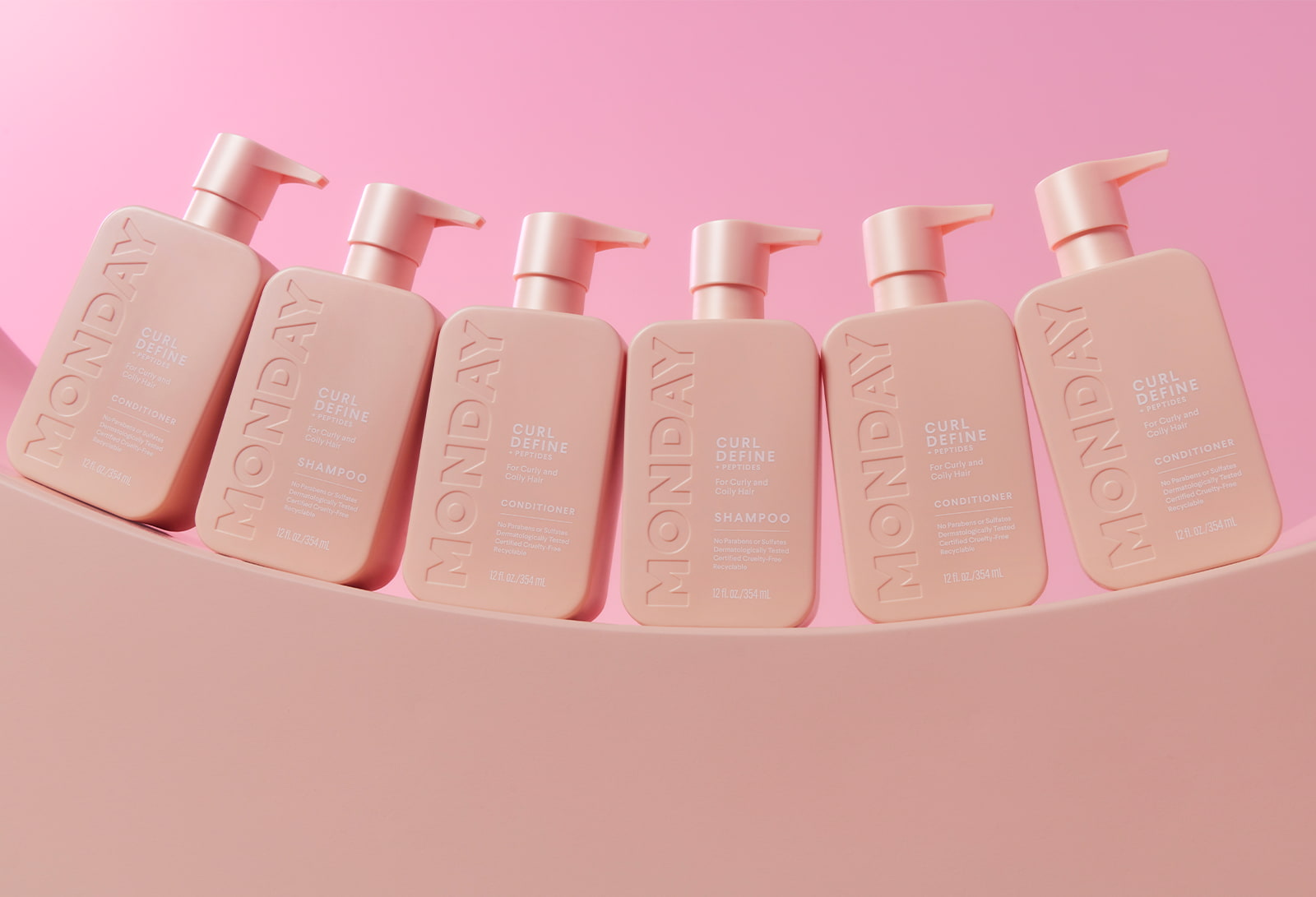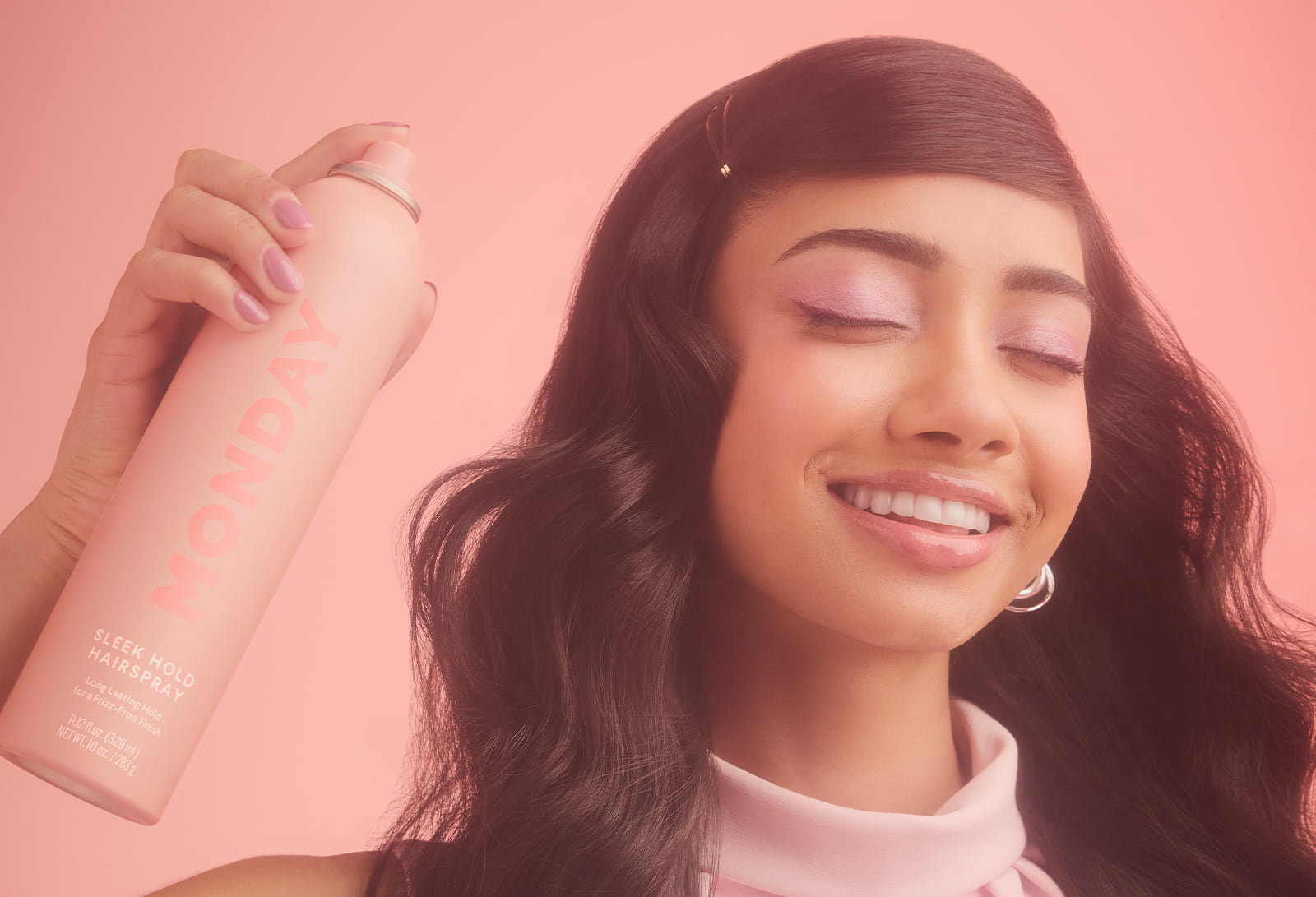Launched: 2020
Key Executives:
2025 Full Year Expected Revenue Range: $300 to $400 million
2025 Projected Offline Distribution Points: 600,000
Primary Category: Haircare
Other Categories: Bodycare, Wellness
Key Markets: United States, United Kingdom, Canada
Retail Partnerships: Amazon, Target, Walmart, Costco, CVS
Primary Distribution Channel: Mass
Other Distribution Channels: Grocery, Drugstore, Amazon, Prestige
Funding Rounds: Self-funded
When Monday Haircare first launched, there were plenty of exciting brands like The Ordinary and Glossier that were helping democratize the skincare and beauty space, but when it came to haircare, there weren't any premium, modern brands available in the same way. I wanted to show that beauty products didn’t have to cost more for the sake of it. To me, price didn’t have to equal quality. There wasn’t anything available in a mass setting that ticked all those boxes like being cruelty-free or not using ingredients people were increasingly conscious of, while also being something you’d want to have in your shower. I knew there was a chance to connect with discerning young beauty consumers in a new way with something they could genuinely be excited about, just without the unnecessary price tag.
Insights provided by Jaimee Lupton, Co-Founder
Key business initiatives for 2025?
What are you most proud of having accomplished?
MONDAY’s rapid growth; having launched in early 2020, and within five years, expanding at an incredibly quick rate to be available in 43 countries with more than 200 retailers and in 78,000 doors. We are the #1 haircare brand on TikTok, and we were named Glossy’s Haircare Brand of the Year for 2024, with close to two dozen other beauty awards.
What has been the biggest surprise?
I’d say the biggest learning when it comes to business expansion is that each market is completely unique, and you can’t underestimate the nuances of each. Our approach has been to find experts in those markets, whether within our own team or by aligning with PR and marketing agencies that are on-the-ground and understand the market, culture, and customer innately. Often this can’t be taught.
What fuels your competitive advantage?
MONDAY is completely vertically integrated with a 27,000-square-meter (32,000 square yards) innovation and development lab based out of China, with the capacity to produce over 100,000,000 bottles of MONDAY per year, or eight per minute. With this model, we are able to produce at scale in an incredibly lean way, and pass this cost savings onto our retail partners. Pairing this with our laser-focus on the “new”and ‘“next,” our goal is to take on established names in the “big beauty” space and rethink what it means to be a beauty brand available at a mass scale. We want to better serve modern consumers whose desire for modern offerings have been overlooked by traditional beauty brands and mass retailers—by shaking up the status quo with fresh and relevant product offerings that excite existing customers and attract emerging ones based on how they shop now and into the future.


Insight on the future of the beauty industry.
There are so many brands I admire in the beauty industry doing incredibly exciting things. The mass and masstige beauty space is really starting to open up, and there’s so many brands across hair, skin, body, and personal care that are bringing new innovation to the table and proving they can be just as exciting as “luxury” brands (if not more!). I hope to see this continue. For MONDAY, our goal is to take on established names in the big beauty space and rethink what it means to be a beauty or personal care brand available at a mass scale.
What is the best piece of advice you’ve been given?
A friend and fellow beauty brand founder once told me “you can have it all, just not all at once.” I think this applies both to business and to your personal life as a founder. In business, it means you often need to shift focus depending on what your brand needs at any given phase. Personally, this year I had my first child, and that new perspective is forcing me to prioritize my time and efforts as a founder and leader and has crystallized my purpose.
What is the best mistake you've ever made and what did you learn?
Mistakes are often presented as the one “big one” that is a pivotal, recognizable moment—when in reality there are so many small decisions that go into running a brand or a business every day, and it’s impossible to always know what the right thing to do is. Ultimately, no one is there to tell you, and you will choose the wrong option plenty of times. Sometimes you need to double down and commit to your beliefs and times when you’ll have to be corrected and change course, but you really can’t let the fear of failure or making the wrong decision hold you back; otherwise it will paralyze you. You need to learn to accept the fear and uncertainty and move forward anyway.
What advice would you give to someone contemplating launching a beauty brand?
I have learned that being your target consumer is a true superpower, as trying to get into the mind of your target market is often half the battle. I tell other female beauty founders not to underestimate themselves and their innate understanding of the beauty industry and brand landscape. Don’t let others (especially those who don’t have that same intimate knowledge) lead you to doubt yourself on this. Also, there will be sacrifice, but it won't be that way forever.
If you could change one thing in the beauty industry what would it be?
Seeing more female founders remain at the helm of their business. There is a real pattern of a female founder building a brand, only for a male CEO to be ushered in when it is deemed necessary for expansion. Of course every business needs to do what is best for its growth and to serve its customer, however I often see this as a real disservice when the female founder who established and grew the idea is perceived as not being capable of leading the brand into its next phase—instead she should be empowered by those around her to take that step.